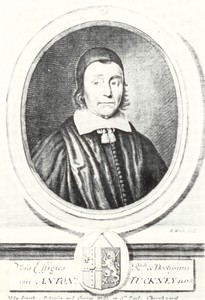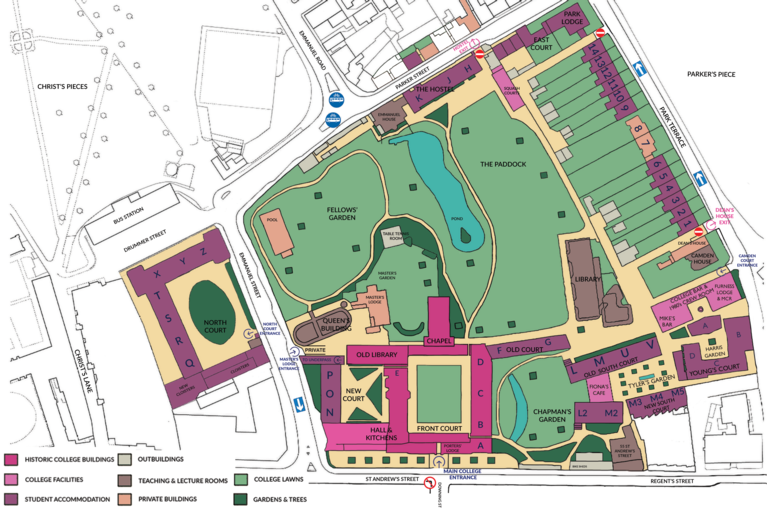Anthony Tuckney (1599-1670)

Anthony Tuckney, who entered Emmanuel in 1613, was in many ways a typical Emmanuel man of his generation.
He was a Fellow from 1619 to 1630. In 1629, two years after taking his B.D., he was appointed town preacher at Boston in Lincolnshire (a stronghold of Puritanism), and when in 1633 his cousin the famous John Cotton emigrated to New England Tuckney succeeded him as vicar of Boston. He remained in touch with Cotton, and was zealous on the home front in support of the colonists' efforts to evangelise the American Indians.
Tuckney was a great success as a preacher, and as a pastor won especial esteem for his devotion to his parishioners during an outbreak of plague in 1637. He founded and endowed a parish library at Boston, housed above the church porch. In 1643, as a leading Puritan theologian, Tuckney was appointed a member of the Westminster Assembly of Divines set up by the Long Parliament to reform the English church, drawing up new doctrinal formularies (in this he played a major part) and devising an obligatory alternative service book (the Directory) in place of the existing Book of Common Prayer.
In 1645 he was put in as Master of Emmanuel in place of Richard Holdsworth, who had been ejected for his royalist sympathies. His continued duties at Westminster kept him non-resident until 1648; but he was not indifferent to the interests of the College. In 1651, for example, he tried to save the moderate William Sancroft (the later Archbishop) from being ejected in the general 'purge' of the colleges undertaken by the Parliamentarians.
From 1653 Tuckney was Master of St John's, where again he was not afraid to question instructions from political 'higher authority' and insisted on the election of fellows on their academic ability (which, unlike alleged godliness, could not be feigned). From 1656 he was also Regius Professor of Divinity, but he was dismissed from both his offices in 1661, after the Restoration.
In his enforced retirement he continued to preach as opportunity offered, and at one stage, in 1665, actually suffered arrest for non-conformist utterances. But he was not by nature an extremist, and remained on kindly terms with colleagues and former pupils even when they diverged from him in their theology. This shows in his exchanges in the early 1650's with Benjamin Whichcote*, the leader of that younger, more rationalist, and less authoritarian generation of Emmanuel Puritans known as the Cambridge Platonists.
Tuckney published little himself, though many of his sermons and other writings were printed after his death.

